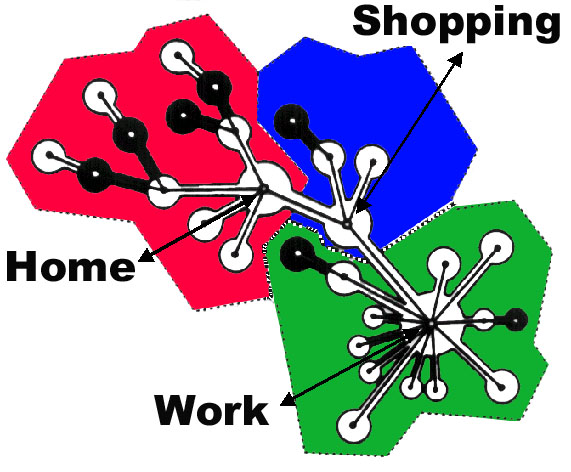A collective noun is a noun that is singular in form but is used to define a group of people or things, like “a faculty of academics,” “a chain of islands,” or “a pride of lions.” While playing around with them in 2006 for an article titled “A Plethora of PhDs,” your editor tried to find a collective noun for geographers. Some serious googling came up with “a conglomerate of geologists,” “a nucleus of physicists,” and “a multiplicity of mathematicians,” but nada for geographers. So, I ran a departmental contest to see who could come up with the best collective noun for geographers. There wasn’t exactly “a surfeit of suggestions,” but here are the entries submitted back then:
- An agglomeration of geographers
- An aggregation of geographers
- An autocorrelation of geographers
- A cluster of geographers
- A collocation of geographers
- A continent of geographers
- A coordinate of geographers
- A glôb of geographers
- A global warm-ongering of geographers
- A globe of geographers
- An intersection of geographers
- A ‘l’attitude’ of geographers
- A mass of geographers
- A meridian of geographers
- A milieux of geographers
- An orientation of geographers
- A ubiquity of geographers
- A world of geographers
Five years later, Dr. Trevor Jennings (CMath FIMA) emailed to say: “I was looking on Google for the definitive answer as to the collective noun for geographers, since many of my contemporaries at my Durham college were geographers. I notice that your interesting results did not include a ‘gazetteer’ of geographers.” Accordingly, your editor reposted the original article February 14, 2011 and asked for new contributions – here are the latest results: an atlas of geographers (Stella Larson), an autocorrelation of geographers (Keith Clarke), a cart o’ [geo]graphers (Greg Mohr), a cluster of geographers (Keith Clarke, Dan Gauldin), a gaggle of geographers (Terry Smith, Helen Webre), a gazetteer of geographers (Trevor Jennings), a jumble of geographers (Helen Webre), and a mountain of geographers (Todd Webre).
Helen Webre commented that other obvious possibilities could be a world, a range, a sea or an ocean, a landing, a topography, or a grid, and she concluded by saying “There are just too many possibilities.” Tom Cova took Helen’s comment a step further by saying: “I read your piece, and I think the problem is that Geography is too broad to find just one. Here are few suggestions for some sub-specialties: regional scientists (an agglomeration), spatial analysts (a cluster), GIScientists (a union), location scientists (an allocation), biogeographers (a patch), political geographers (a coalition), cartographers (a compendium), demographers (a crowd), and urban geographers (a parcel).
The conclusion? Clear as mud, but it covers the ground. Your editor is partial to “a cart o’ [geo]graphers” or “a ‘l’attitude’ of geographers” because he likes the word play, but “a cluster of geographers” had the most submissions. Your call!

.jpg)
.jpg)
.jpg)

